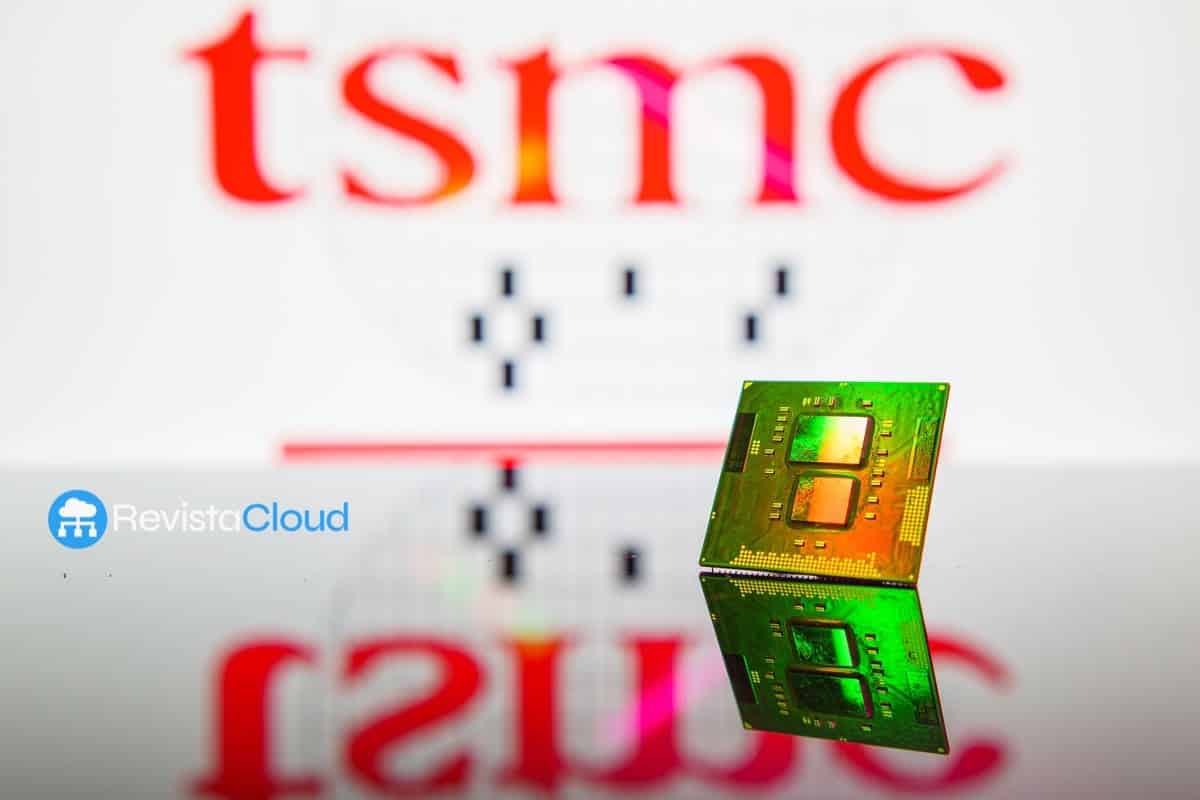The Taiwanese semiconductor giant TSMC (Taiwan Semiconductor Manufacturing Company) has announced plans to significantly expand its production capabilities in Europe, with the goal of manufacturing artificial intelligence (AI) chips for companies like Nvidia and AMD. Currently, the company has already begun construction of a new factory in Dresden, Germany, marking the first step in its expansion on the continent.
Driven by high demand for AI chips
The growing global demand for AI chips is driving TSMC’s ambitious expansion plans in Europe over the next few years. While AI chip production is a priority, the semiconductor giant will not be limited to just these components. According to Wu Cheng-wen, Minister of Science and Technology of Taiwan, in an interview with Bloomberg TV, the company is adjusting the planning of its factories to accommodate this growth.
The new TSMC facility in Dresden is designed to primarily produce AI chips developed by Nvidia and AMD, although its production capacity will also encompass other types of semiconductors. This strategic expansion aims to meet the growing demand in the global technology industry, especially in sectors such as machine learning and advanced computing.
First European facilities in Germany
The project in Dresden represents an investment of 10 billion euros, half of which is subsidized by the German government, as announced earlier this year. This factory will be TSMC’s first production facility in Europe, with production expected to begin in 2027. With this project, TSMC aims to solidify its presence in the European semiconductor market, positioning itself as a key player in the development of AI chips in the region.
The Dresden facility is also part of a broader strategy by TSMC to diversify its production sites globally, in response to increasing geopolitical tensions with China. Alongside its investments in Europe, TSMC is also allocating $65 billion to new production facilities in Arizona, USA.
David Carrero Fdez-Baillo, co-founder of Stackscale (Aire Group), as an expert in cloud infrastructure, highlights that the arrival of these facilities in Europe is great news for bringing chip production closer and avoiding potential global supply crises. However, it would be important for there to be many more facilities from different companies, not just the global leader.
Opportunities beyond Germany
TSMC’s expansion will not only benefit Germany but could also have a positive impact on other regions in Europe. According to Minister Wu Cheng-wen, areas near the factory could benefit significantly, especially suppliers who could establish themselves near the plant. This approach would allow the European technology industry to leverage TSMC’s growing presence in the region.
The minister also noted that the Czech Republic could benefit from this expansion. TSMC has shown interest in collaborating with the region through financial contributions and the creation of academic research programs. This initiative could be part of a broader strategy to strengthen diplomatic relations between Taiwan and the Czech Republic, a country with which Taiwan has been improving ties in recent years.
A promising future for European chip designers
TSMC’s growth in Europe could open up new opportunities for semiconductor design companies on the continent. Companies like Infineon Technologies from Germany, Black Semiconductor, or Dutch firms like NXP Semiconductors and Alexera AI could benefit from TSMC’s expanded production capacity. With increased manufacturing capacity in the region, European chip designers will have access to a more robust and closer supply chain, allowing them to scale their production and better meet global market demands.
In summary
TSMC’s new factory in Dresden marks a milestone in the company’s expansion in Europe, solidifying its position in the global semiconductor market. With substantial investment and support from the German government, TSMC is poised to play a crucial role in manufacturing AI chips and other advanced semiconductors, contributing to European technological development and offering new opportunities to regional companies. The expansion not only strengthens TSMC’s leadership in the industry but also positions Europe as a key hub in global semiconductor production in the years to come.
Source: Techzine

